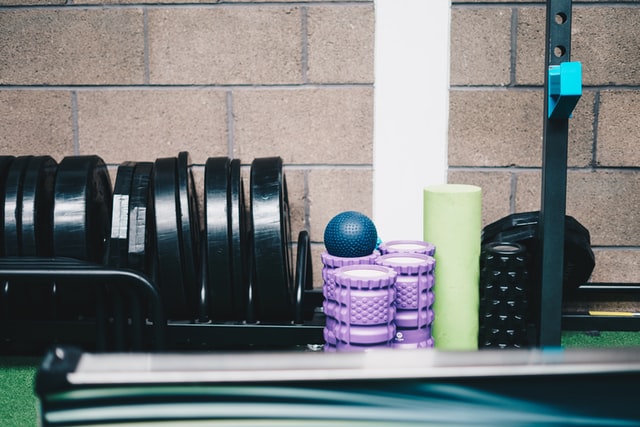Remember the feeling of waking up completely sore the day after a workout? Is it possible to minimize the unpleasant repercussions of an intense gym session? Keep reading to discover 5 tips that will help you speed up muscle recovery!
Physical activity brings various benefits to the body and increases levels of dopamine which regulates sleep, appetite and digestion. However, although going beyond your limits makes you feel pumped and motivated, it usually causes severe muscle soreness that significantly affects your bodily functioning in the days following the gym session. Nobody likes waking up so sore that going down the stairs becomes an impossible task. How to maximize muscle recovery after an intense workout? Well, keep reading to find out!
-
Eat wholesome foods
A balanced diet can work wonders. Healthy products and wholesome ingredients ensure that your body is fueled with quality nutrients that support muscle recovery. Cut down on processed foods that don’t bring any benefits to your digestion. Limit unhealthy snacks, fizzy drinks, junk food and magical supplements. Instead, fill your plate with fruits, protein, vegetables and whole grains that will help to reduce muscle soreness.
-
Stay hydrated and avoid alcohol
Everybody knows that water consumption matters. There are even special calculators that estimate how much fluid you should drink each day. Why is it so crucial when talking about muscle recovery? Dehydration can have a negative impact on your tissues and their ability to repair. It’s worth remembering it especially during the summer months when we frequently work out outside, and are likely to get dehydrated much faster.
When talking about liquids, it needs to be mentioned that alcohol and tobacco have a negative impact on muscle recovery. Therefore, if you want to feel well after a workout, make sure you limit the consumption of these products. Generally speaking, smoking can increase the risk of injuries and has a negative impact on the musculoskeletal system, whereas alcohol doesn’t support protein synthesis and thus damages muscles’ ability to recover.
-
Take care of your sleep hygiene
Most people lead busy lifestyles and forget about the importance of sleep and its impact on brain function, muscle recovery and everyday functioning. Apart from helping you to balance weight and lowering your risk of heart diseases and diabetes, quality sleep reduces stress and gives your muscles time to recover. You have probably noticed that during times of intense physical activity, your body needs more hours of sleep to regenerate than usual. According to various studies, sleep deprivation can negatively affect muscle recovery and the production of hormones that support muscle growth.
-
Massage your muscles
The so-called percussive therapy can be a real life-saver when talking about muscle recovery after an intense workout. It’s simply about massaging specific body parts with a special device such as a massage gun that resembles a hand-held drill. Deep tissue massage is renowned for preventing DOMS (delayed onset muscle soreness), improving blood flow as well as boosting your muscle flexibility and performance during gym sessions. Just point the device at the muscle you want to massage, turn it on and forget about the pain once and for all. Massage guns are also ideal for people who lead sedentary lifestyles or work at a computer and complain about constant shoulder, back or neck pain. This little gadget can bring various benefits to your body.
You can also take a quiz about your body test type and learn more about your body, and make a judgement call about how best to use a massage gun for your body.
-
Enjoy rest days
Some of us easily fall into the dangerous trap of binge exercising and feel guilty when taking a rest day or eating so-called “cheat meals”. It’s worth remembering that such an approach isn’t beneficial for the body and can have a negative impact on the recovery of your muscles as they aren’t able to replenish glycogen stores. Consequently, you are fatigued and prone to injuries. Balance is everything. Take a break and let your body recover.
Is it possible to speed up muscle recovery?
There are a few practices you may follow to minimize the feeling of soreness after a workout. However, there is no one golden rule as the process of muscle recovery is determined by a number of factors such as your:
- sleep routine,
- diet,
- lifestyle and stress,
- workout routine.
Drinking lots of water, keeping your diet as clean as possible, developing a good sleep routine, letting yourself rest and investing in a professional massage gun will definitely help you speed up muscle recovery and forget about muscle soreness once and for all.
